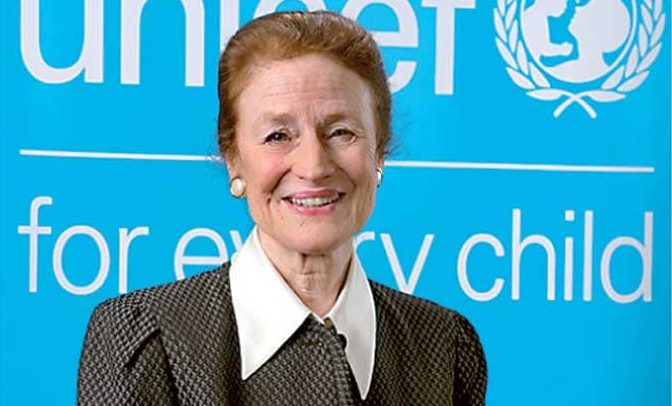Henrietta Fore
There have been historic gains overall for the world’s children since the Convention on the Rights of the Child was adopted 30 years ago.
However, many of the poorest children are yet to feel the impact, according to The Convention on the Rights of the Child at a Crossroads, a new report released.
Part of commemorations marking the 30th anniversary of the CRC, the report looked at the undeniable achievements of the past three decades, proof that where there is political will and determination, children’s lives improve.
“There have been impressive gains for children over the past three decades, as more and more are living longer, better and healthier lives.
However, the odds continue to be stacked against the poorest and most vulnerable,” said UNICEF Executive Director Henrietta Fore.
“In addition to the persistent challenges of health, nutrition and education, children today have to contend with new threats like climate change, online abuse and cyberbullying. Only with innovation, new technologies, political will and increased resources will we help translate the vision of the Convention on the Rights of the Child into a reality for all children everywhere.”
Ghana, being the first country to ratify this landmark treaty can show progress of how children’s lives have been impacted thirty years after this commitment to support child rights.
Citing progress in child rights over the past three decades, the report notes that the global under-five mortality rate has fallen by about 60 per cent.
Also, the proportion of primary-school-aged children not in school decreased from 18 per cent to 8 per cent and the guiding principles of the CRC – non-discrimination; the best interests of the child; the right to life, survival and development; and the right to protection – have influenced numerous constitutions, laws, policies and practices globally.
In Ghana, under-five mortality rate has reduced by 60 percent.
Life expectancy has increased by over six years on average. Ghana has halved poverty and has developed a robust social protection programme. The country also boosted immunization coverage to over 90% and – in education – has achieved universal primary enrolment with gender parity.
However, the report notes, this progress has not been even.
For example, it stated that in low and middle-income countries children from the poorest households are twice as likely to die from preventable causes before their fifth birthday than children from the richest households.
“According to recent available data, only half of children from the poorest households in sub-Saharan Africa are vaccinated against measles, compared to 85 per cent of children from the richest households,” the report said.
The report further noted that despite a decline in child marriage rates globally, the poorest girls in some countries are more at risk today than they were in 1989.
“The Convention stands at a crossroads between its illustrious past and its future potential. It is up to us to recommit, take decisive steps and hold ourselves accountable,” said Fore.
“We should take our lead from young people who are speaking up and speaking out for their rights as never before, we must act now – boldly and creatively.”
By Jamila Akweley Okertchiri

